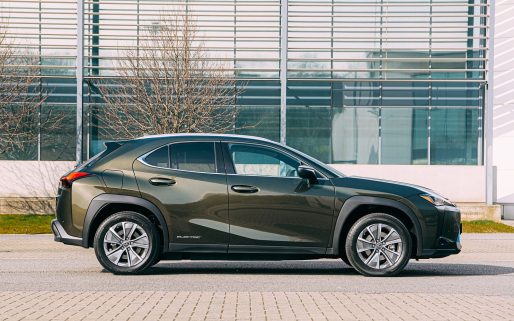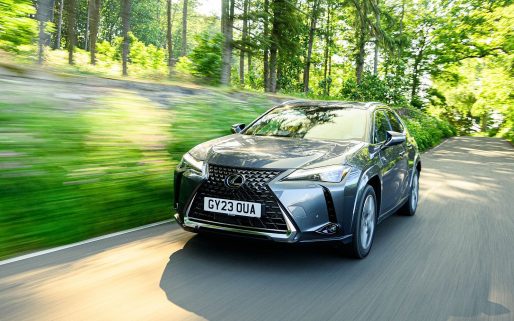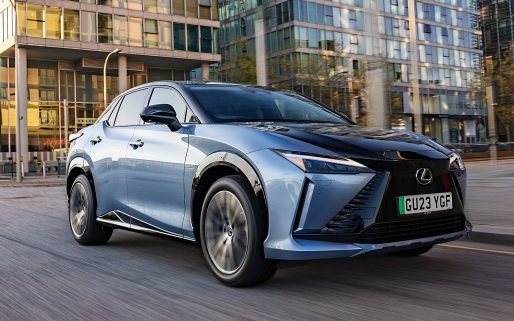It has been said that tax is one of two things in this world that you can be sure of. But when it comes to making a decision about a company car and understanding the taxable benefit of this vehicle, many feel inadequately informed.
This article is designed to help you understand three things: 1) What is Benefit in Kind (or BIK) and how is it calculated? 2) Why are Lexus vehicles a shrewd choice for business users? and 3) How much will a Lexus company car cost me?

What is Benefit in Kind and how is it calculated?
Benefit in Kind is a benefit or ‘work perk’ provided by an employer, such as the use of a company car. Although this particular perk is not included in your salary or wages, it does not come for free. The monetary benefit is valued and taxed by the government, with the taxable figure divided into monthly payments and deducted from your wages by your employer.
The value of a company car is calculated through a number of factors, such as the purchase cost of the vehicle, the type of fuel it uses and the volume of CO2 it emits. Other considerations that have a bearing on the cost include the predicted residual value of the vehicle and the level of income tax normally levied against the recipient of the vehicle.
Why are Lexus vehicles a shrewd choice for business users?
The factors used to calculate BIK taxation harmonise with the developmental approach Lexus has been applying for years in order to improve the cleanliness, fuel-efficiency, quality and longevity of its vehicles. So it comes as no surprise to discover that Lexus offers a broad range of tax-efficient, eco-friendly vehicles with award-winning hybrid technology.

For example, our hybrid powertrains deliver impressively low CO2 emissions and competitive whole life running costs. They emit around one-tenth of the NOx emissions of a Euro 6 diesel engine and therefore do not require expensive particulate filters or other emission reducing systems. Meanwhile, regenerative braking significantly reduces both brake and tyre wear.
How much will a Lexus company car cost me?
With a range of eleven models to choose from, ten of which offer full hybrid technology, the choice is broad and compelling. The figures below offer a sample of the potential costs associated with Benefit in Kind for 2020 to 2021. For our calculations, we chose the most affordable versions of each model for a 40% income tax payer and excluded fuel cost contributions.
Click here to configure a more detailed tax calculation based on your specific requirements.
| LEXUS MODEL | CO2 | % OF PRICE TAXED | MARGINAL TAX RATE | TAXABLE VALUE (P11D) | TAX PAYABLE PER YEAR / MONTH |
| CT 200h | 118g/km | 26 | 40% | £26,055 | £2,710 / £225 |
| UX 250h | 120g/km | 27 | 40% | £29,730 | £3,211 / £268 |
| IS 300h | 137g/km | 30 | 40% | £33,005 | £3,961 / £330 |
| NX 300h | 161g/km | 35 | 40% | £35,275 | £4,939 / £412 |
| ES 300h | 119g/km | 26 | 40% | £34,980 | £3,638 / £303 |
| RC 300h | 141g/km | 31 | 40% | £39,975 | £4,957 / £413 |
| RC F | 268g/km | 37 | 40% | £60,710 | £8,985 / £749 |
| RX 450h | 178g/km | 37 | 40% | £50,650 | £7,496 / £625 |
| RX 450h L | 185g/km | 37 | 40% | £51,940 | £7,687 / £641 |
| LC 500h | 184g/km | 37 | 40% | £77,895 | £11,528 / £961 |
| LC 500 | 262g/km | 37 | 40% | £75,960 | £11,242 / £937 |
| LS 500h | 176g/km | 37 | 40% | £75,985 | £11,246 / £937 |
Learn more: The Lexus guide to Total Cost of Ownership (TCO)




